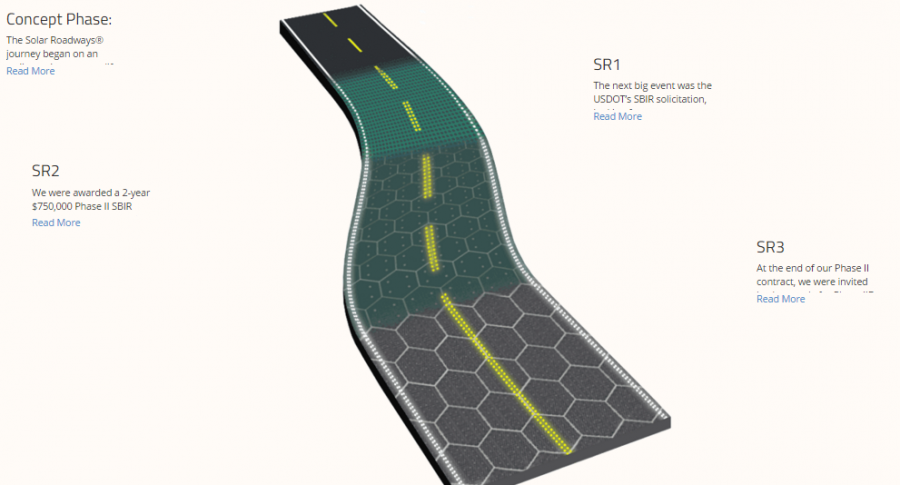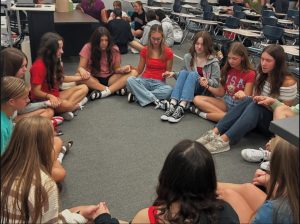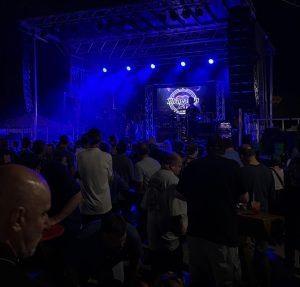Solar panel roadways
Solar Roadways progress of creating a solar road.
February 29, 2016
A couple from Idaho has developed solar roadways that could very well be used all over the world in the near future.
The idea of solar panel roadways seems like something you would see in the Back to the Future movies, but the fact of the matter is having roads and highways covered in solar panels instead of asphalt is already happening. The Netherlands, for example, opened a solar road in Nov. of last year, and as of May, it has “produced enough energy to power a small household for about a year.”
One of the main concerns most people have about installing these solar panels is the cost. Julie and Scott Brusaw, co-inventors and co-founders of Solar Roadways, have raised over $2.25mil on their Indiegogo campaign. Although their original campaign ended in June, they still have an ongoing campaign that is still taking donations.
According to the couple’s website, it’s the same cost as asphalt roads. “Years ago, when we were working on our very first prototype, we estimated that if we could make our 12′ x 12′ panels for under $10K, then we could break even with asphalt,” the Brusaw’s said.
Another area of concern is safety. In areas where there is a lot of rain and snow, people are anticipating major flaws in the design, as it is glass. What’s special about these specific panels is that they are not only a textured glass, but they have heating elements installed in order to melt snow and keep the roads dry.
Some more features of these roadways are their LED lights. This makes markings, such as parking spots, changeable. Unlike asphalt roads, each panel has a specific coordinate, so in the event that a panel gets damaged, road workers are able to view which solar panel it is and replace it. This not only saves time and resources, money too.
Not only are solar panels efficient, they’re also very environmentally friendly.
“The Solar Roadway has the ability to cut greenhouse gases by up to 75-percent!” Scott Brushaw said. This is a revolutionary invention in the science world.








